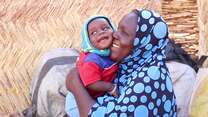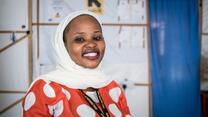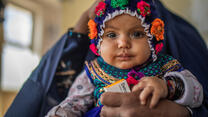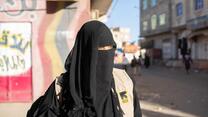In Syria only 59% of hospitals and 57% of public health care centers are left fully functional. Even those left functioning have been overburdened to near exhaustion after the deadly August 2022 cholera outbreak, followed by the disastrous 7.8 magnitude earthquake that struck southern Turkiye and northwest Syria on the 6th February 2023.
The protracted conflict, combined with natural disasters, has only worsened living conditions for the 90% of the population already living below the poverty line. For those living in remote and economically challenged regions, health care needs remain crucial.
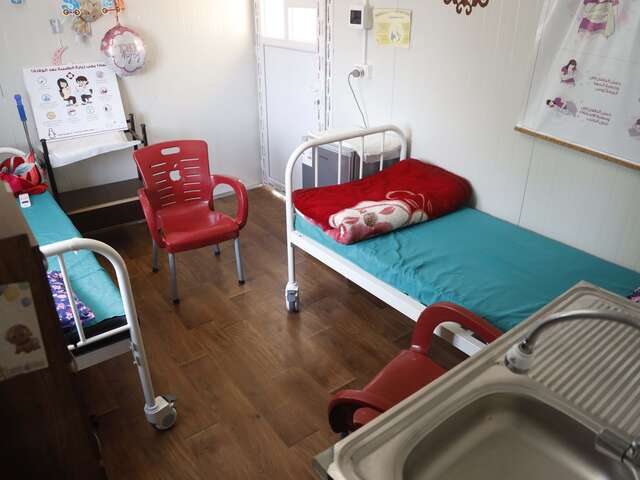
The International Rescue Committee (IRC), with funding from the European Union (EU), provides critical primary and reproductive health services to entire rural areas of northeast and west Syria.
Baraa* is a 29-year old dedicated legal midwife working with the IRC in one of these remote areas. Together with her team, their day begins at 8:30 AM as they enter their clinic and begin preparing medical tools and organizing the day’s appointments. Alongside attending to pregnant women, Baraa also provides family planning guidance as well as education sessions on topics such as childbirth preparation, pregnancy complications and personal hygiene.
“The situation would be dire if we weren't open here. People flock to it because they trust us. They continue to come to us and engage with us extensively, knowing that we provide good care and all of us have a high level of knowledge.”
Most health care facilities in the country are underprepared and unresourced to deal with emergencies. IRC health services offer care ranging from education to pediatrics and women’s health. They also offer maternity kits, support high-risk pregnancies, and address family issues, including pregnancy-related depression and domestic violence.
“The center consists of several clinics. There is a pediatric clinic, an internal medicine clinic and a women's clinic. There's an education section for beneficiaries as soon as they come here, based on the topic,” Baraa explains. “For example, today we have information about breastfeeding and how to care for the newborn.”
Baraa has been working for the IRC for four years now. Her example emphasizes the essential role healthcare professionals play in providing vital services and support to communities in need. "The war has had economic and psychological impacts on people and the community. I, like many others, have lost all my belongings and my dearest family members, my father and my brother,” she says. “This is my situation, similar to the situation of almost everyone.” Despite her own harrowing journey, she hopes for a peaceful future for her country and its children.
Widad* is a mother of five children living in northeast Syria. When she encountered significant challenges during childbirth, the IRC health care center played a pivotal role in helping her. The clinic’s proximity to her home allowed health care workers to save the day when, because of complications, she had to unexpectedly give birth at home.
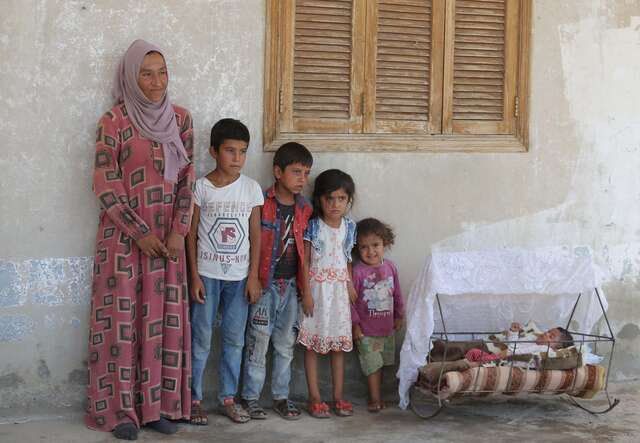
Free postnatal check-ups and breastfeeding guidance contributed significantly to her newborn daughter's health. “I was scared. I gave birth naturally at home and there was no one with me. I feel at ease because the clinic is close to me, and even if I don't have a car, I can walk there,” she tells us. “In terms of treatment and service, they are excellent, especially in the ninth month. I would go to them regularly.”
“They treated the placenta, gave me serum and monitored me for bleeding. I stayed there for about 5 hours after giving birth. They cleaned the baby's mouth and weighed her. The girls in the tent taught me about breastfeeding. I was breastfeeding, but not as they taught me.”
Having this clinic just a short distance from the village is a lifeline for many other mothers and families like Widad's. Baraa illustrates the importance of this center for women in the area: “For about four years now, which means in each shift, there are no less than 3 or 4 births. As professionals in the field of maternity and pregnancy care, we cover the entire process from the beginning of the pregnancy to the end of the pregnancy.”
Sanaa* is a Technical Supervisor for the International Rescue Committee's (IRC) reproductive health centers in northeast Syria. She oversees ten centers, including three that provide natural childbirth services, all of which play a vital role in providing healthcare services to rural areas. One of the health centers supported by the EU offers 24-hour reproductive health services and has become a central hub for a variety of medical needs.
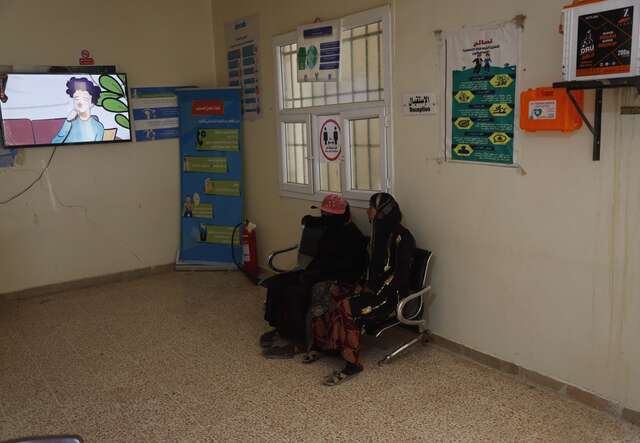
Sanaa’s* tireless work highlights the importance of supporting accessible healthcare in a region wrecked by conflict, where timely intervention can make a life-saving difference. Implementing improvements in services provided are of key value to her. “Three years ago, there was no family planning-related aspect, but due to the existing health education and skilled midwives, there's now excellent awareness. This has led to an increase in family planning cases. Three years ago, maybe one or two beneficiaries came to the center but currently, the numbers are around 100, 120, or 130 beneficiaries for family planning.”
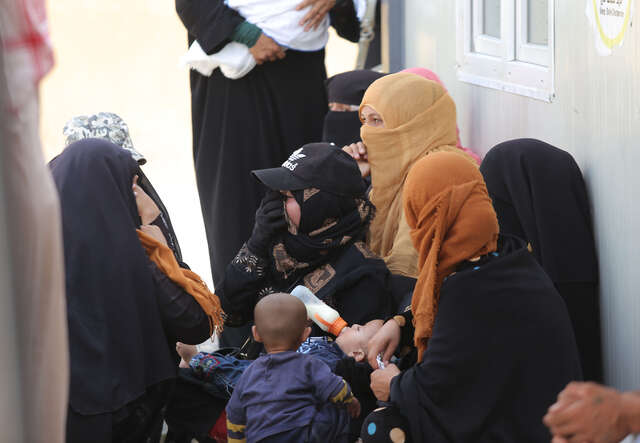
Sanaa* describes how Widad’s case was urgent when she arrived at the clinic at 3 AM in critical condition because she retained her placenta during her emergency home birth. “The midwife here took complete action,” she says, “she was fully trained on how to perform manual placenta removal according to the protocol. For Widad, the complications could have been very different if she hadn't come to the clinic. It could have led to postpartum hemorrhage which could lead to death.”

Regular visits to these centers play an important role in identifying and addressing various health issues in countless patients. As the war in Syria continues and health systems remain overloaded, IRC health workers remain steadfast in their commitment to providing access to essential medical care and education to vulnerable populations. Even in the toughest conditions, safe pregnancy and delivery is a top priority for reproductive health workers.
Baraa says she has one message for the world: “I hope people know about our country and how it should be talked about, and that tranquility and security should return to it as it was in the past.”
*Name has been changed to protect the person’s privacy and safety.
The International Rescue Committee partners with the European Union to provide life-saving support to people caught in conflict and disasters around the world. Our work funded by the EU enables people to survive, recover and rebuild their lives.

